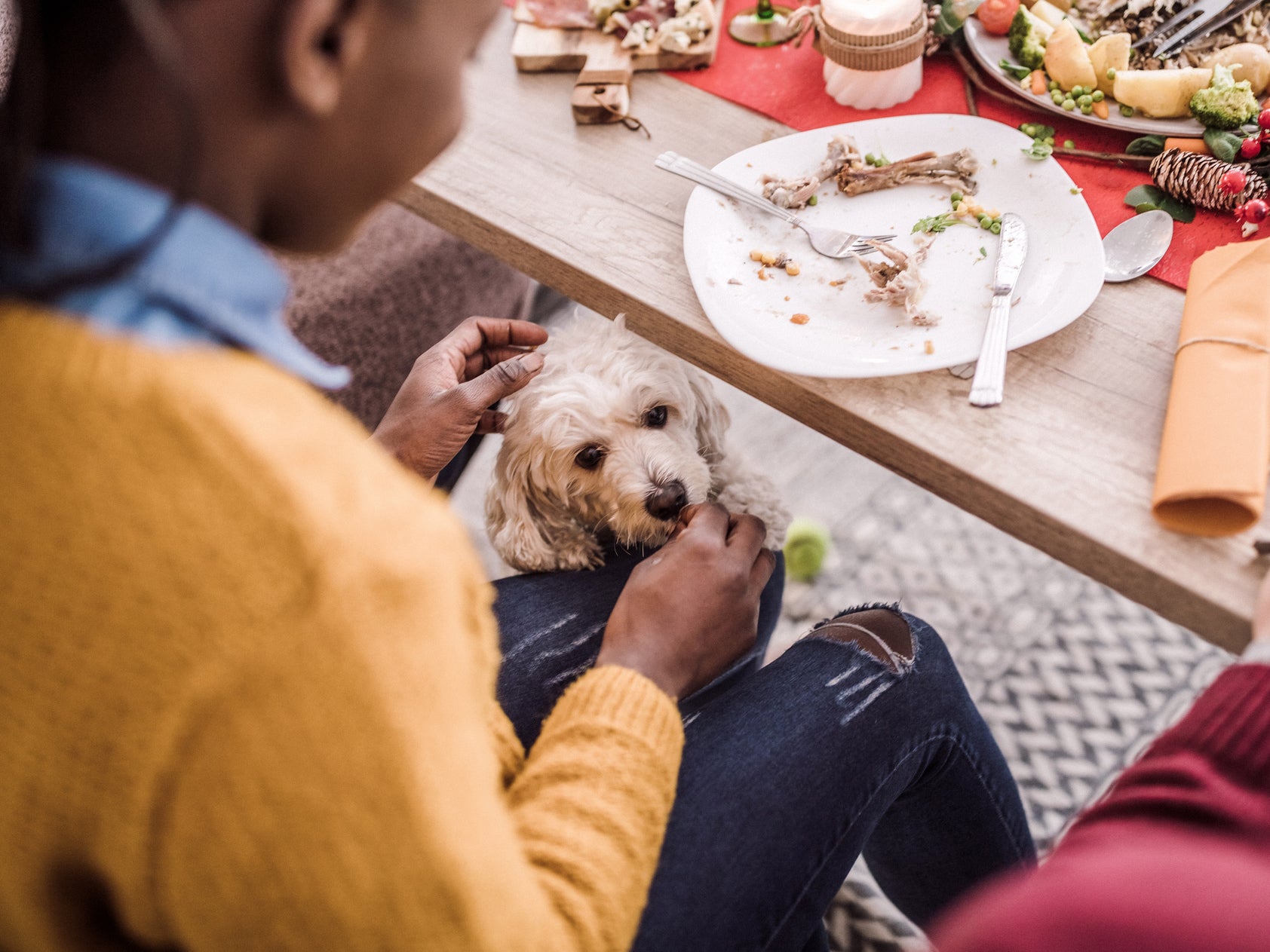The Christmas foods you should not feed your pets at the dinner table
Be wary with certain foods you might sneak under the table for your pets

Your support helps us to tell the story
From reproductive rights to climate change to Big Tech, The Independent is on the ground when the story is developing. Whether it's investigating the financials of Elon Musk's pro-Trump PAC or producing our latest documentary, 'The A Word', which shines a light on the American women fighting for reproductive rights, we know how important it is to parse out the facts from the messaging.
At such a critical moment in US history, we need reporters on the ground. Your donation allows us to keep sending journalists to speak to both sides of the story.
The Independent is trusted by Americans across the entire political spectrum. And unlike many other quality news outlets, we choose not to lock Americans out of our reporting and analysis with paywalls. We believe quality journalism should be available to everyone, paid for by those who can afford it.
Your support makes all the difference.In many households, Christmas dinner boasts an array of dishes, from succulent turkey to crispy potatoes, and mouth-watering pigs in blankets.
Those who have pets may habitually feed their animal companions under the table during meals.
But certain foods served around the festive season may actually be putting your pet’s health at risk.
Here are the foods you should not feed your pets at the Christmas table, according to experts.
Cooked bones
While you may think your dog would love nothing more than to chew on a bone, if the bone is cooked, it could cause harm.
“Cooked bones can easily splinter when they’re chewed on risking damage to your pet’s throat or stomach,” Joanne Wright, veterinary nurse for the PDSA (People’s Dispensary for Sick Animals) tells The Independent.
“Even smaller bones pose a risk as small bones or tiny fragments can accumulate to potentially cause blockages.”
Ms Wright explains that it is acceptable to feed a small amount of lean, boneless white turkey meat to pets.
Dark or processed meat
According to Ms Wright, dark meat can be too rich for pets to consume, leading them to experience an upset stomach.
Sam Watson, welfare expert at the RSPCA (Royal Society for the Prevention of Cruelty to Animals), says that processed meats such as pigs in blankets are not suitable for animals, due to their high salt content, in addition to other salty foods such as stuffing.
The ASPCA (American Society for the Prevention of Cruelty to Animals) states that the consumption of large quantities of salt can cause pets to experience excessive thirst and urination, in addition to potential sodium poisoning.
Onions, garlic or leeks
Onions, garlics, leeks, shallots and chives can prove toxic for animals, Maria Banica, a vet at Blue Cross pet charity, states.
As these ingredients may be found in dishes such as gravy or stuffing, it is advisable not to feed these to your pets.
Chocolate
It is widely known among pet owners that animals should not consume treats such as chocolate or some nuts, lest they become unwell.
“For some pets these foods can sadly prove fatal, so make sure these festive treats are out of reach of any pets to avoid any accidents,” says Ms Wright.
Mr Watson adds that if a dog accidentally consumes chocolate, the owner is advised to call their vet straight away for advise.
Caroline Allen, chief veterinary officer at the RSPCA, explains that pets may have easy access to chocolate if it is left wrapped underneath the Christmas tree.
“If you think your pet has eaten something that might be toxic do contact your vet ASAP, as early treatment is always preferable and can avoid further complications. Even on Christmas day your vet will have emergency cover where you can get help and advice,” she tells The Independent.
Consumption of chocolate can cause convulsions and heart problems among pets, Ms Banica adds.
Raisins, sultanas or currants
Many festive bakes contain ingredients such as raisins, sultanas and currants that can be damaging for animals.
“Theres is a lot of food at Christmas time which can be dangerous for our pets. Mince pies and Christmas pudding containing raisins, currants and sultanas are, like grapes, highly poisonous to pets,” Ms Banica states.
"Even a small amount can cause severe kidney failure so keep out of harm’s way.”
Alcohol
Ms Banica explains that it can be dangerous for animals to consume alcohol.
So, during the Yuletide season, it is suggested that you ensure that no mulled wine, eggnog or other form of alcohol beverage is left lying around.
The Blue Cross charity has outlined a list of festive foods it is safe to feed your dog or cat during Christmas.
The list includes dishes such as Brussels sprouts, parsnips, carrots, peas, mash potato (ideally without any additional butter) and salmon.
Join our commenting forum
Join thought-provoking conversations, follow other Independent readers and see their replies
Comments